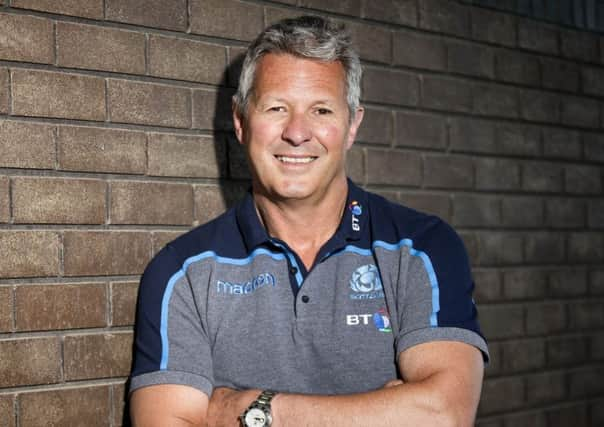Super 6 chief Sean Lineen says new set-up can be stepping stone to professional rugby


Former Boroughmuir and Scotland centre Lineen, who has been put in charge of the “on-field development” of the semi-professional Super 6, briefed the media on the new set-up’s progress yesterday.
He claimed that the clubs involved – Ayr, Boroughmuir, Heriot’s, Melrose, Stirling County and Watsonians – are “way down the track” towards finalising their 35-man squads ahead of the launch of the controversial new tier in just over five months’ time.
Advertisement
Hide AdAdvertisement
Hide AdThe creation of Super 6 has been a tortuous process but Lineen, who also had a six-year spell coaching Glasgow Warriors before being moved to a more administrative role at Murrayfield, urged doubters to be patient and have faith that this major shake-up of the domestic game will ultimately benefit all of Scottish rugby.
He said: “There are a fair number of SQ [Scottish qualified] players now looking to come back into Scotland.
“I could name ten now who are coming back in.
“I’m actually really excited about these players. They are doing it for the right reasons, maybe not the money at the moment but to put themselves in the shop window for the professional game in Scotland.
“These are guys who are in their mid-20s, playing in National One or the Championship, and thinking they really fancy having a stab at it.”
It has been frequently suggested that Super 6 could become a de facto Under-23 development league, with high demands and low financial incentives putting off more experienced players who don’t think they can balance it with family and career commitments.
In recent weeks, Hawick prop Shawn Muir and Ayr back-row Tommy Spinks – two of the top performers in the Premiership in recent seasons – have chosen not to sign Super 6 deals on this basis. Lineen, however, says he is confident that enough players of the requisite calibre will be recruited to make the league a success.
He added: “They [the Super 6 coaches] are not going to get 35 All Blacks in year one, they know they have to build their squads and, at the moment, all six clubs are way down the track with their recruitment – looking at a mixture of youth and experience.
“We understand that there are players in the Premiership who have decided that Super 6 is not for them. That’s fine. The door stays open, but we understand.
Advertisement
Hide AdAdvertisement
Hide Ad“Looking at the squads as they are coming together, there are still quite a lot of players in the 23 to 28 bracket.
“They [the players] are not going to be training full-time every day,” he added. “You’re looking at two or three conditioning sessions per week, either early morning or in the evening; an extra skill session on a Monday night, which some of the clubs already do.
“But this will be a little bit more focused with some extra support from specialist skills staff and the occasional Sunday to do a flush session or an analysis session.
“So, it is just about trying to bridge that gap between amateur and understanding what the environment looks like if you want to go towards professional.
Lineen is obviously keen for the new set-up to make a strong start.
He said: “The challenge for me is to make sure that, in year one and two, we push forward and have a really great competition where the players and coaches can develop, and we can keep the best young players in Scotland.”
Lineen also added more detail to the fixture schedule for the first 18 months of the Super 6 league.
As this is a World Cup year, the first game in the domestic competition will be on 9 November and that part of the season will run through to a play-off final on 28 March, with gaps over Christmas, New Year and on Six Nations weekends.
Advertisement
Hide AdAdvertisement
Hide AdThe cross-border element against Welsh Premiership clubs will run for six games over seven weeks from 18 April to 30 May.
Thereafter, the plan is to bring the launch of the domestic Super 6 section forward to mid-August to run through to early November, with the cross-border games launching in mid-April and running through to the end of May.
Essentially, this means the creation of two mini seasons within the 12 month calendar, with a two-month break in the summer and a four-and-a-half month break in the winter.